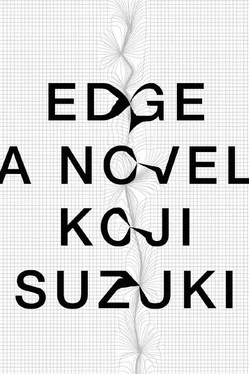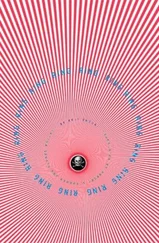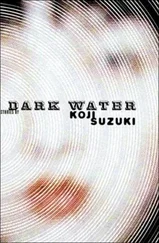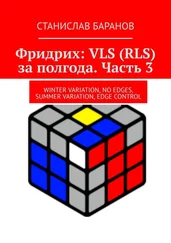Koji Suzuki - Edge
Здесь есть возможность читать онлайн «Koji Suzuki - Edge» весь текст электронной книги совершенно бесплатно (целиком полную версию без сокращений). В некоторых случаях можно слушать аудио, скачать через торрент в формате fb2 и присутствует краткое содержание. Город: New York, Год выпуска: 2012, ISBN: 2012, Издательство: Vertical, Жанр: Ужасы и Мистика, на английском языке. Описание произведения, (предисловие) а так же отзывы посетителей доступны на портале библиотеки ЛибКат.
- Название:Edge
- Автор:
- Издательство:Vertical
- Жанр:
- Год:2012
- Город:New York
- ISBN:978-1-935654-95-7
- Рейтинг книги:4 / 5. Голосов: 1
-
Избранное:Добавить в избранное
- Отзывы:
-
Ваша оценка:
- 80
- 1
- 2
- 3
- 4
- 5
Edge: краткое содержание, описание и аннотация
Предлагаем к чтению аннотацию, описание, краткое содержание или предисловие (зависит от того, что написал сам автор книги «Edge»). Если вы не нашли необходимую информацию о книге — напишите в комментариях, мы постараемся отыскать её.
Edge — читать онлайн бесплатно полную книгу (весь текст) целиком
Ниже представлен текст книги, разбитый по страницам. Система сохранения места последней прочитанной страницы, позволяет с удобством читать онлайн бесплатно книгу «Edge», без необходимости каждый раз заново искать на чём Вы остановились. Поставьте закладку, и сможете в любой момент перейти на страницу, на которой закончили чтение.
Интервал:
Закладка:
Seiji leant forwards, seizing on Saeko’s indecision. “You want to know the truth? I killed them.”
He had caught her off guard. Raising a hand over her mouth, she demanded, “What did you just say?”
“I killed every last one of them. Disposed of the bodies.” This time he spoke purposefully, pronouncing each word with sickening clarity.
Saeko’s mind lost focus, as though a fog had descended. The words reverberated around her skull as the world faded under the veil of white. This was not a simple confession. If Seiji had murdered them, then Saeko’s situation had just taken a turn for the worse. As the weight of the implications of what he’d said began to sink in, Saeko felt her body begin to tremble.
“What did you do with the bodies?” she managed. Her voice was hoarse with the effort.
Was it a bluff? The idea had crossed her mind a number of times when she was writing up the article. He would have been able to leverage his position as a family member to call everyone outside. It had just been an idea, of course, quickly dismissed. In the first place, she hadn’t really believed that Seiji had it in him to carry off such a feat; she had seen no evidence that suggested otherwise. But now, those initial convictions began to sway. There was something inhuman about him, something dark. Perhaps the incompetence she had perceived had just been an act designed to mask his true nature. It would be dangerous to underestimate him now.
“Why don’t you open the window, take a look outside.”
His meaning was clear. Leading down from the house, halfway down the hill, was a dam. Behind the dam lay the expanse of Lake Miwa.
“You threw them in the lake?”
“Exactly. And I made sure they wouldn’t come floating back.”
Saeko knew from articles she’d written that the swelling of gasses inside the intestines could cause bodies to float to the surface even with heavy stones strapped to them. Seiji was boasting that he did something to ensure this wouldn’t happen. Was there any way to check whether he was telling the truth?
She shuddered at the possibility that he was. If he had killed the family and disposed of the bodies, then there had never been a wormhole here in the first place.
But what about the other observations they had made? Takato was located on an active fault line. There had been abnormal levels of sunspot activity on the day the family went missing. Was it just a coincidence? Was this case unrelated to the others involving disturbances in the magnetic field? Had they simply stumbled across a completely unrelated crime? No, the facts said otherwise.
The trembling of her body refused to subside. She had been determined to gain the upper hand, but Seiji’s manipulations kept shifting the ground, keeping her struggling to catch up, always a step behind. If she didn’t manage to make some headway, the phase transition would be upon them and everything would just cease to be. Maybe that was the best-case scenario. Of course, it was possible that Seiji would try to kill her before that even happened.
“Why would you do such a thing?”
“Come on,” Seiji said, ignoring her. “You still haven’t answered my question. Do you think I’m dangerous? I want to know, seriously.”
“I can’t answer that until I know why you killed them.”
“Such a pretty girl … You won’t be able to work it out no matter how hard you try.”
“That’s why I’m asking.”
“I fucking love the way you talk to me, mmm.” Seiji’s tongue darted out, snaking around his lips.
“Was it the money? You got yourself in so much debt you couldn’t even see the light of day.”
“Such a disappointing, run-of-the-mill answer.”
Saeko felt herself getting angry. There was no time for this ridiculous exchange. She slammed a fist down on the table and yelled, “That’s enough!”
She sat, bracing herself for whatever was to come. She was afraid he would say something she had once known but forgotten since — words that would establish some old link between them.
“It all began with you, dear. It all began with you.” Seiji burped loudly, but his expression remained the same. A moment later he raised his rear end and let out a loud fart. He looked oddly pleased with himself.
By some point before the beginning of the sixteenth century, the inhabitants of the mountain city of Machu Picchu had disappeared. Some four hundred years later, an excavation unearthed what turned out to be a mass grave that contained 173 bodies, including those of children. The discovery’s significance remained murky, but one archeological theory held that the fleeing inhabitants had slaughtered those that would slow them down …
When Toshiya related this fact, Kato looked disturbed. “Just because the number’s the same, does that mean anything? It’s just a damn coincidence.” His voice was rising. “Who’s to say more people aren’t going to turn up anyway?”
This apparent match of numbers had got everyone frightened. Hashiba joined Kato and Hosokawa in looking back down the hill. Up until a short while ago there had been a steady procession of people winding their way up the paths, but now these were deathly quiet. There was nothing to suggest that anyone else would turn up. The number stood as it was.
And here they were, all on a forested hill, isolated by the darkness. The idea of being trapped in the mountains of Peru was all too easy to imagine.
“It’s just coincidence. There’s nothing to it.” Kato was adamant.
“Have you forgotten?” Isogai reminded, holding up a finger. “Everything we’ve seen so far in terms of numbers has meant something. The coincidences all had significance.”
Toshiya looked around nervously, conscious that he’d been the last one to come, and also the one to bring up the subject of Machu Picchu and the grave. “There’s a lot of women here. Do you know how many?” he asked.
“Why the hell would that matter?” Kato retorted, quite worried.
“It’s just that … Well, with the bodies in Machu Picchu, 150 were female.”
A nervous silence fell among the gathered men. They had already worked out the split. Including children, the number of females totaled exactly the same — one hundred and fifty.
“Well, that’s that then,” Hashiba broke the silence, attempting to lighten the atmosphere. “At least we know where and when we’re going — to Machu Picchu, sometime in the fifteenth or sixteenth century.”
He looked around, but no one seemed sure how to react. Their faces told different stories, but all were combinations of unease, fear, and doubt.
Hashiba considered what this new information meant. If they were actually headed for Machu Picchu, then at least it was guaranteed that everyone would get through the wormhole. He had prepared himself for the possibility that the wormhole would take them further than just a few years back into Japan’s past and to a completely different place and time. Besides, Machu Picchu was a place he’d always wanted to visit … If he was going to travel back in time it might as well be to somewhere interesting. Hashiba tried his best to look on this in a positive light.
But the issue of the number of bodies found in the grave kept pulling, and he couldn’t shake the nasty feeling it gave him. The numbers were exactly the same.
“Their … their … their …” Toshiya started to say something. Each time he stopped short, taking a step backwards. His face had gone pale.
“Toshiya, are you okay?” Hashiba asked, trying to calm him down. “What is it?”
“Th-Their …” he stuttered. “Their arms, their legs — they were all severed. The bodies had their limbs severed …”
Hashiba and the crew stood absolutely still as the shock took hold. A dry wind rustled the branches overhead; it sounded like it was mocking them somehow, laughing at their misfortune. The image seeded itself in his mind before he could do anything to stop it: hacked-off limbs strewn around empty mountain slopes like a gruesome collection of broken branches.
Читать дальшеИнтервал:
Закладка:
Похожие книги на «Edge»
Представляем Вашему вниманию похожие книги на «Edge» списком для выбора. Мы отобрали схожую по названию и смыслу литературу в надежде предоставить читателям больше вариантов отыскать новые, интересные, ещё непрочитанные произведения.
Обсуждение, отзывы о книге «Edge» и просто собственные мнения читателей. Оставьте ваши комментарии, напишите, что Вы думаете о произведении, его смысле или главных героях. Укажите что конкретно понравилось, а что нет, и почему Вы так считаете.












